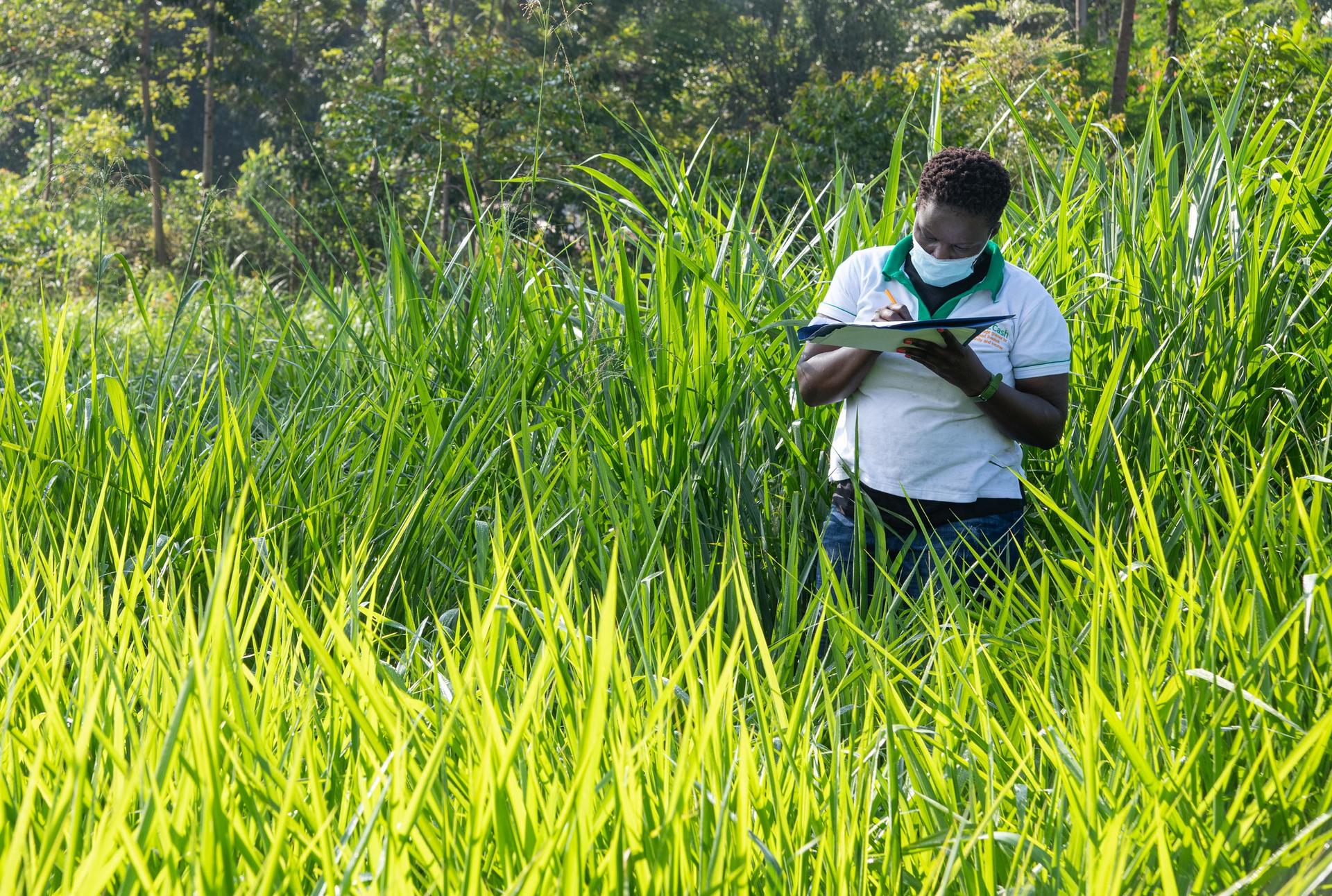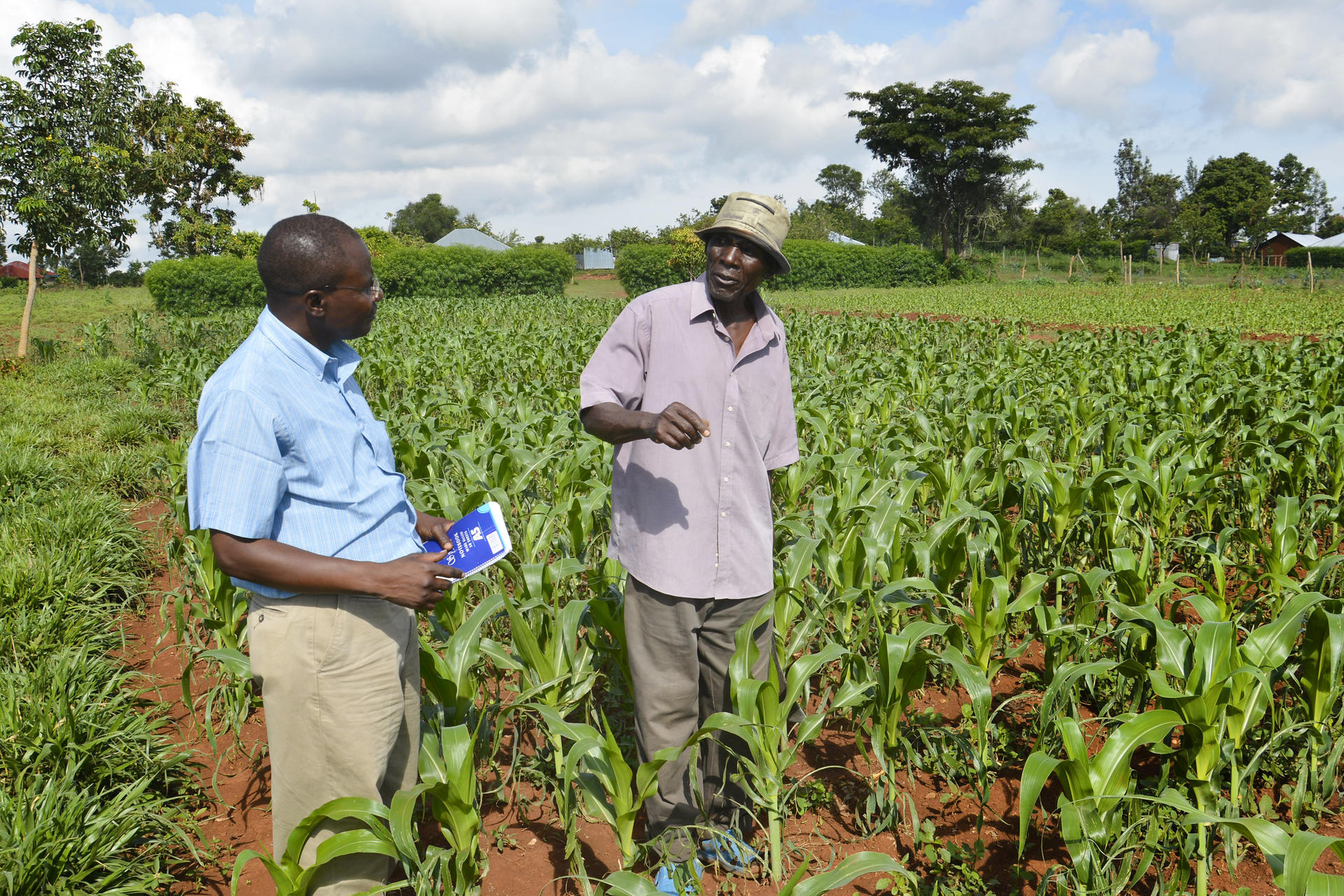Tropical Forages Thematic Research Areas

Researchers measure and weigh forage grasses in field trials to find better forage feed varieties project together with KALRO, Send a Cow and Advantage Crops.
©Alliance/Georgina Smith
In the Alliance's research on Tropical Forages, we aim to develop research-based solutions to improve farmers livelihoods, increasing their income while protecting the environment through technology and innovations which inform the reduction of GHG emissions and mitigate the impacts of climate change.
Our research is based on these pillars.
- Socio-economy
We analyze the dynamics and contexts in which bovine livestock develops in emerging economies, using quantitative and qualitative analysis, such as economic evaluations and market studies, to better understand the needs, limitations, and opportunities of producers and their communities within the processes of adopting forage technologies, meat and milk value chains, and production systems. With this information, we aim to be considered in the design and construction of more competitive scenarios that allow for improving the welfare conditions and strengthening the livestock sector.
- Physiology
We study the existing interactions between tropical forages and the environment where they develop. We focus on investigating anatomical, morphological, physiological, and biochemical attributes associated with adaptation and or acclimation processes caused by water deficiency and or excess, as well as low soil fertility. More recently, work has been initiated where soil compaction, excess light, or shading are the factors that affect plant development.
- Molecular Biology
We aim to develop new technologies that allow us to analyze and characterize the genetic diversity of forage species, as well as to study soil microorganisms that are involved in nutrient cycling in crops and rumen microorganisms that play an important role in forage digestion. We seek to identify forage alternatives that can contribute to the mitigation of greenhouse gases, especially enteric methane, which is produced in the animal digestion process.

Kenyan farmer Richard Amolo with icipe research technician Dickens Nyagol. Promotion and adoption of Brachiaria grasses and other forages in western Kenya as components of the “push-pull” approach developed by the International Centre of Insect Physiology and Ecology (icipe) for pest management and soil fertility improvement.
©2013CIAT/NathanRussell

Germplasm evaluation in Cauca, Colombia.
©Alliance/ Neil Palmer
- Germplasm
The objective is to characterize and use the genetic diversity of tropical forage species to improve their productivity and adaptability to different environmental conditions and the needs of producers through studies on the benefits of establishing improved forages in livestock systems. This involves the identification and selection of genetic materials with desirable characteristics, as well as the development of techniques for propagation, multiplication, and conservation of these materials.
- Plant Breeding
Our goal is to develop hybrid forage grasses with adaptive capacity to biotic (resistant to pests) and abiotic factors (resistance to drought, flooding, and soil acidity) to contribute to the increase of meat and milk production and mitigate the effects of climate change. Currently, the program is working on improving three research lines: (1) Inter-specific hybrids of Urochloa (U. decumbens x U. brizantha x U. ruziziensis), (2) Urochloa humidicola, and (3) Megathyrsus maximus.
- Gender and Social Inclusion
The objective is to promote gender equity and encourage active participation of youth and vulnerable populations in decision-making in the livestock sector by identifying and addressing the barriers that prevent their access. Additionally, the aim is to establish partnerships and support networks that foster the inclusion of populations affected by external factors such as displacement, migration, and violence. Opportunities for learning and training in climate change, mitigation, and reforestation will also be provided.
- Scaling
The objective is to scale results to large number of stakeholders and make its research relevant for transformation of agricultural systems. Linking with partners is critical to this approach. Many partners are stated below but the list is not exhaustive.
